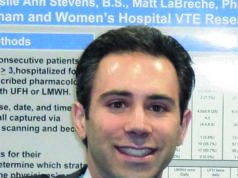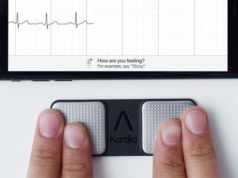
Data from an open-label, pilot randomised trial (TRED-HF) indicate that if heart failure treatment is withdrawn in patients with recovered dilated cardiomyopathy, many will relapse and require treatment to be reinitiated. These findings suggest that until predictors of relapse can be identified, patients with recovered dilated cardiomyopathy should receive treatment indefinitely.
Brian P Halliday (Cardiovascular Research Centre and Cardiovascular Magnetic Resonance Unit, Royal Brompton Hospital, London, UK) and others write in the Lancet that following resolution of symptoms and recovery in cardiac function after treatment for dilated cardiomyopathy, a substantial number of patients enquire “whether it necessary to continue lifelong treatment”. They add “Patients are often young and reluctant to take medications for many years without evidence of continued benefit”. However, according to Halliday et al, the potential risks and benefits of withdrawing treatment in this group are unknown and the lack of data in this area mean that there is “consequently, no consensus among experts or clear recommendations in guidelines”. Therefore, the investigators performed a pilot study “to examine the effect of treatment withdrawal in patients with clinical, imaging, and biochemical evidence of recovery from dilated cardiomyopathy”.
Patients were included in the study if they had a previous diagnosis of dilated cardiomyopathy with left ventricular ejection fraction (LVEF) 40% or lower, absence of current symptoms of heart failure, were receiving heart failure medication (such as beta-blockers), and proven recovery (as identified via imaging and cardiac biomarkers). Of 51 patients enrolled, 25 were randomised to undergo treatment withdrawal (over a maximum of 16 weeks) and 26 were randomised to receive continued treatment. At six months’ follow-up, patients in the continued treatment arm underwent treatment withdrawal (again over a maximum of 16 weeks) with follow-up at six months. The primary endpoint was a relapse of dilated cardiomyopathy within six months.
Of those assigned to treatment withdrawal, 11 (44%) met the primary endpoint for relapse within six months. No one assigned to continued treatment relapsed within this time period. “The Kaplan-Meier estimate of the event rate at six months in the withdrawal group was 45.7% (p=0.0001),” the investigators note.
In the continued treatment arm, at the six months’ follow-up point, 25 patients underwent withdrawal of treatment and one patient stayed on treatment after developing symptoms of atrial fibrillation. Of the 25 patients who underwent treatment withdrawal, nine met the criteria for relapse within the following six months of follow-up. Halliday et al comment: “Therefore of the 50 patients who began withdrawal, 20 (40%) relapsed during the study period”. They add that 13 (26%) relapsed within 16 weeks of beginning withdrawal “all of whom relapsed within eight weeks of taking their last medication”.
Furthermore, another four patients who did not meet the criteria for relapse restarted heart failure treatment (for reasons such as refractory hypertension) within six months of withdrawal. The investigators observe: “Therefore, only 25 (50%) of 50 patients successfully completed six months of follow-up without reinitiation of treatment.” They note that “potentially” more patients could have relapsed had the treatment withdrawal period been longer.
According to Halliday et al, the results of TRED-HF suggest that “for many patients, improvement in cardiac function does not reflect full and sustained recovery but rather reflects remission”. They state: “Withdrawal of treatment should, therefore, not be attempted routinely in these patients”, adding that the “speed of deterioration” of patients after treatment was withdrawn could “provide guidance about how to monitor patients if treatment withdrawal is attempted” because of the patient’s request, side-effects, or because the patient is considering pregnancy.
Looking to the future, the investigators conclude: “Future work could identify patient subgroups who have permanent recovery of myocardial function for whom withdrawal is safe or for whom only some medications need to be continued in the long run.”
Study author Sanjay Prasad (Cardiovascular Magnetic Resonance Unit, Royal Brompton Hospital, London, UK) told Cardiac Rhythm News: “The study shows that many patients with ‘recovered’ dilated cardiomyopathy are really in remission. We are now working to identify who are the subset of patients that can safely be weaned off meds and who should stay on them lifelong.”
Coinciding with its publication in the Lancet, TRED-HF was presented at the 2018 American Heart Association scientific session (10–12 November, Chicago, USA.











